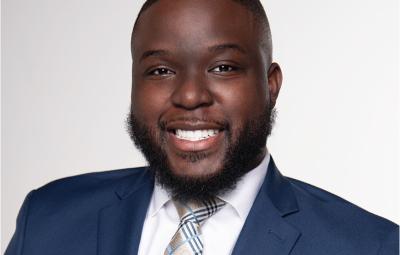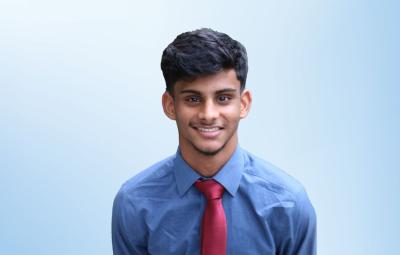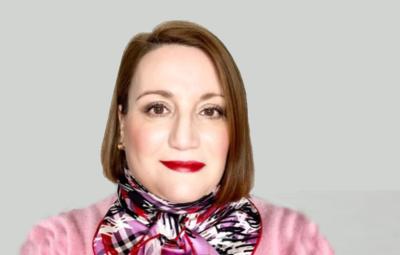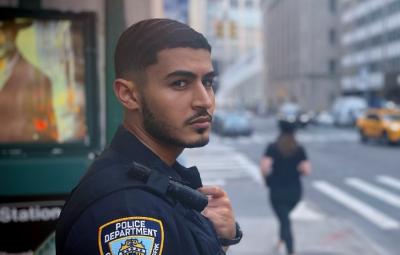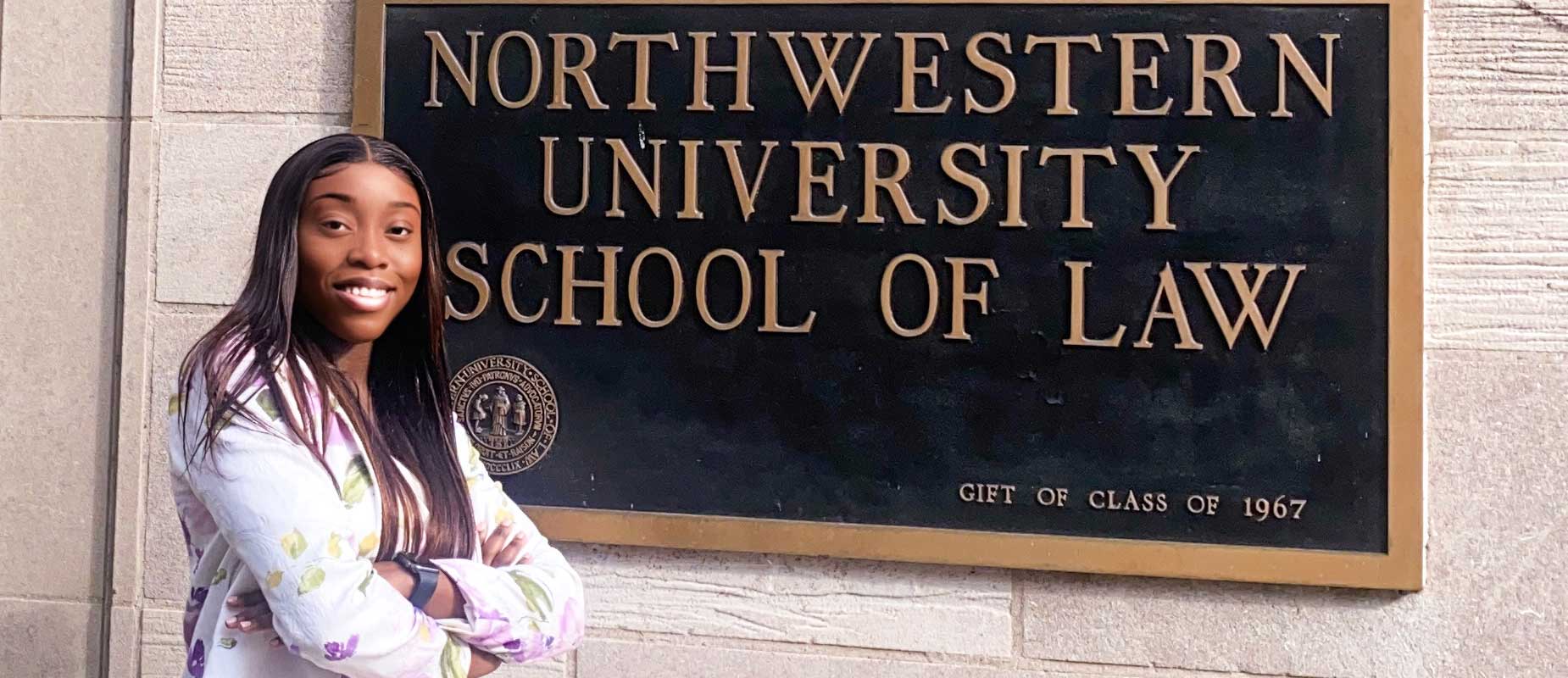
Jehovahnie Saint Rose ’22 just fulfilled a longtime dream. She was accepted into six law schools: Northwestern, American, Fordham, Howard, George Washington, and Maryland. We spoke with the proud Haitian immigrant about her experience.
What was your reaction to being accepted at several top-tier law schools?
When I received the acceptance letters, the first person I thought of was my grandfather. He didn’t have an education, but he worked hard to bring his children and grandchildren to this country. He’s no longer with us, but when I got into all those law schools, I felt like I was presenting him with a trophy saying, “Look, this is what we did together.”
What prepared you for applying to law school?
My work ethic and my support system, including my faith, family, friends, professors, Dr. Charles Davidson, the Honors Program team, and Communications staff. The journey was hard—especially studying for the LSAT—but when I had low days, I’d let my support system know and they’d always encourage me and give me good advice. The Pre-Law Institute (PLI) connected me with judicial internships. The External Affairs team set me up with a Pfizer government litigation internship. So many people were in my corner, helping me see that law school was a real possibility.
Were there any experiences that deepened your legal ambitions?
My judicial internship with Justice Jonah Triebwasser ’72. He was amazing. After each court session, he had the attorneys stay and talk to his interns. We asked them questions about the different cases, applying to law schools, and being an attorney. They always took their time and gave us really detailed answers. Justice Triebwasser made sure that the internship was the perfect blend of courthouse work and professional inspiration.
The judicial internship experience also has a class component to it, and my professor was Dr. Maxwell Mak. He helped me understand all the different legal fields—corporate, international, immigrant, and criminal—and broke down the pros and cons of each specialty. He motivated me to apply to a lot of law schools that I originally thought were out of my reach. If it wasn’t for him and his encouragement, I wouldn’t have applied to T14 (top ranking) law schools.
What did you learn at John Jay that influenced your future legal career?
I took a mass incarceration course and it really opened my eyes to the plight of Black and Brown people severely impacted by the criminal legal system. Even though I’m strongly considering doing corporate law after I graduate from law school, that class made me want to do pro bono work for people who can’t afford an attorney.
When I did the Law School Admission Council (LSAC) Prelaw Undergraduate Scholars Program (PLUS) at Oregon School of Law—a program that PLI helped connect me to—it showed me that I wasn’t tied down to one field of law. A lot of students of color instinctively feel like they have to go into criminal law or immigration law, but LSAC PLUS opened my eyes to many different legal fields where I could make a positive impact on my community.
What law school did you choose and why?
I will be attending Northwestern University Pritzker School of Law. It’s a T14 law school that fully embraces and supports historically underrepresented students. They really invested time in figuring out what I could offer the school and what they could offer me. They also made a point of connecting me to a Black alumnus. When I got on the call with him, we had an instant connection and I really started to see myself at Northwestern.
Where do you see yourself in 10 years?
I want to be a corporate attorney in the healthcare field. That’s largely due to my experience interning at Pfizer and interacting with healthcare legal professionals while my father was sick. Last year, my father received a kidney transplant because he had been suffering with chronic kidney failure for seven years. We had a great experience working with healthcare attorneys. Everything went smoothly and we felt advocated for and seen, but that’s not the experience many people have—especially Black and Brown people. Seeing how my family benefited from that level of care and service made me want to ensure that other people have it too.
